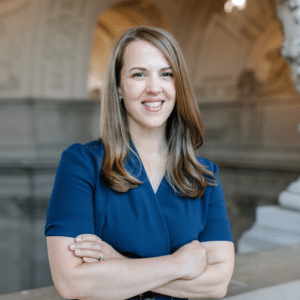
By ProFellow founder, Dr. Vicki Johnson
Often graduate school applicants ask me “What questions should I ask Admissions contacts?” One of the major “unspoken” steps in applying successfully to graduate school is networking with faculty or Admissions representatives at your choice universities before applying. These conversations can provide important answers to questions about funding, curriculum formats, and the campus culture that you cannot find on the Internet. It’s important for you to verify that the program can provide you with the curricular, teaching and financial support you need to be successful. Without these conversations, you might end up applying for programs that are a poor fit for your goals! I prepared this article to provide some guidance on what to ask Admissions contacts whether you are applying to master’s or doctoral programs.
It’s a good idea to start this outreach as soon as possible as these discussions may influence your choice of schools. The graduate program’s website will typically provide a name, email address and phone number for the Admissions contact and/or Department Chair. This person would be your first point of contact. You can ask questions over email or set up a meeting if appropriate. I also highly recommend attending Information Sessions so you can meet them in-person (or virtually)!
Contacting Admissions isn’t as daunting or intimidating when you know the questions to ask and the information that you want to get! I’ll discuss the goals of these meetings and then provide a list of specific questions you can ask.
Questions to Ask Admissions: Master’s Applicants
Whether you are applying to research-based Master’s programs, like an MA or MSc, or professional Master’s programs, like an MBA or MPA, you’ll want to talk with Admissions contacts to understand: 1) what makes the program unique; 2) if the program offers funding to some or most students at acceptance and; 3) if this program will be a good fit for you based on your current academic and professional background, and; 4) if the program will help you achieve your career goals. Often you cannot find this information simply by reviewing the program’s website.
Funding, in particular, can be elusive at the master’s level. I recommend that applicants find and apply to master’s programs offering “full funding” (i.e. Graduate Assistantships or fellowships offering an annual stipend and full tuition waiver) because there are very few external awards that provide full or significant funding for a master’s degree. It can be difficult to identify master’s programs that offer full funding because universities typically have little information on their website about internal funding opportunities. This is why it’s important to talk to Admissions contacts EARLY! This will clarify your chances of receiving a funding package and what deadlines and application requirements you may need to meet to be eligible.
In your initial email, mention that you are interested in learning more about their graduate program and give a little bit of information about yourself. Here are some questions you will want to ask the Admissions contact:
- I would love to learn more about the program. Are there any upcoming Information Sessions I can attend? (Note: be sure to check the website for this information before asking!)
- What are the graduate program’s strengths relative to other programs?
- What types of career tracks do students in this program move into?
- Are there any merit-based awards I should be aware of and what are their deadlines?
- Do I need to apply early to be considered for funding and awards?
- Are master’s students eligible to receive or apply for a Graduate Assistantship? If yes, what is the process for applying to Graduate Assistantships?
- What percentage of students receive funding or an Assistantship at acceptance?
- What are the average GRE/GMAT/LSAT, etc. scores of accepted students? (Note: be sure to check the website for this information before asking! Test scores may not be required.)
- How many students applied and how many were offered acceptance last year?
- Do you have any student ambassadors that I could be introduced to for more information about the program?
Note: Do NOT copy and paste this list of questions into a single email! I suggest starting with questions about your eligibility and funding. Ask more in-depth questions about the program’s strengths in events like Information Sessions, campus tours or meetings.
Questions to Ask Admissions: Doctoral/PhD Applicants
Just like applicants to master’s programs, doctoral applicants will want to investigate what makes the PhD program unique, if the program will be a good fit for you based on your current academic and professional background, and if the program offers funding to some or all students at acceptance. Applicants to PhD and other types of doctoral programs should be reaching out to faculty members who supervise PhD students in order to discuss their proposed dissertation research and build rapport. Your future PhD supervisor will be assigned by the university to serve as the head of your dissertation committee and will be officially responsible for advising you throughout your career as a PhD student. Therefore, the goal of meeting with potential PhD supervisors is to determine if you have aligned research interests and if she or he will support your proposed dissertation topic. I discuss in more detail why you should contact potential PhD supervisors before applying here.
However, sometimes it can be difficult to reach faculty directly. A small number of schools even have a blanket policy that bars applicants from reaching out to faculty members. Therefore, before starting individual outreach to faculty, it can be helpful to first email or speak to the graduate program’s Admissions contact, which is often the Department Chair. This contact can tell you which faculty will be supervising new graduate students the following academic year and clarify their policies about faculty outreach.
Here are some questions you will want to ask the Admissions contact/Department Chair over email, by phone or in an Information Session event:
- Which faculty members will be advising incoming PhD students the next academic year?
- Would it be okay if I reached out to faculty in the Department directly to discuss my proposed dissertation topic?
- What makes this doctoral program unique?
- Do I need to apply early to be considered for funding and awards?
- What percentage of students receive full funding at acceptance? If it’s less than 100%, ask: How can I strengthen my application to improve my chances of receiving full funding or an Assistantships at acceptance?
- Is the GRE required? What are the average GRE scores of accepted students? (Note: be sure to check the website for this information before asking!)
- How many students applied and how many were offered acceptance last year?
- Do you have any student ambassadors that I could be introduced to for more information about the program?
Take note of the answers to these questions. It’s a great idea to contact Admissions of every program that you are applying to so that you can have a reference point to compare all of your options and know the different opportunities available.
Best of luck! The ProFellow community is rooting for you!
Applying to graduate school and seeking full funding opportunities? Get our FREE 73-page Directory of Fully Funded Graduate Programs and Full Funding Awards listing 1,000+ programs here!

Dr. Vicki Johnson is Founder and CEO of ProFellow, the world’s leading online resource for professional and academic fellowships. She is a four-time fellow, top Ph.D. scholar, Fulbright recipient and an award-winning social entrepreneur. She is the Creator and Director of Fully Funded, an award-winning online course and mentorship program for graduate school applicants seeking to find and win full funding.
© Victoria Johnson / ProFellow, LLC 2021, all rights reserved.